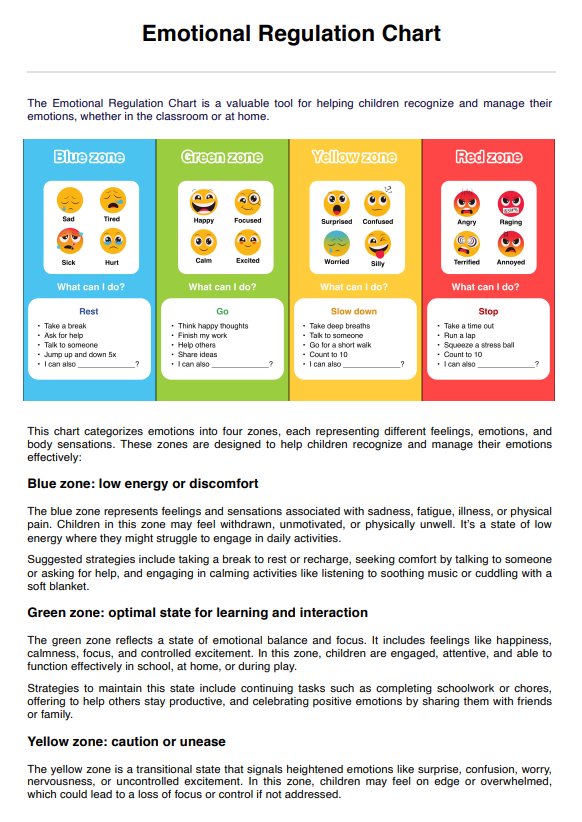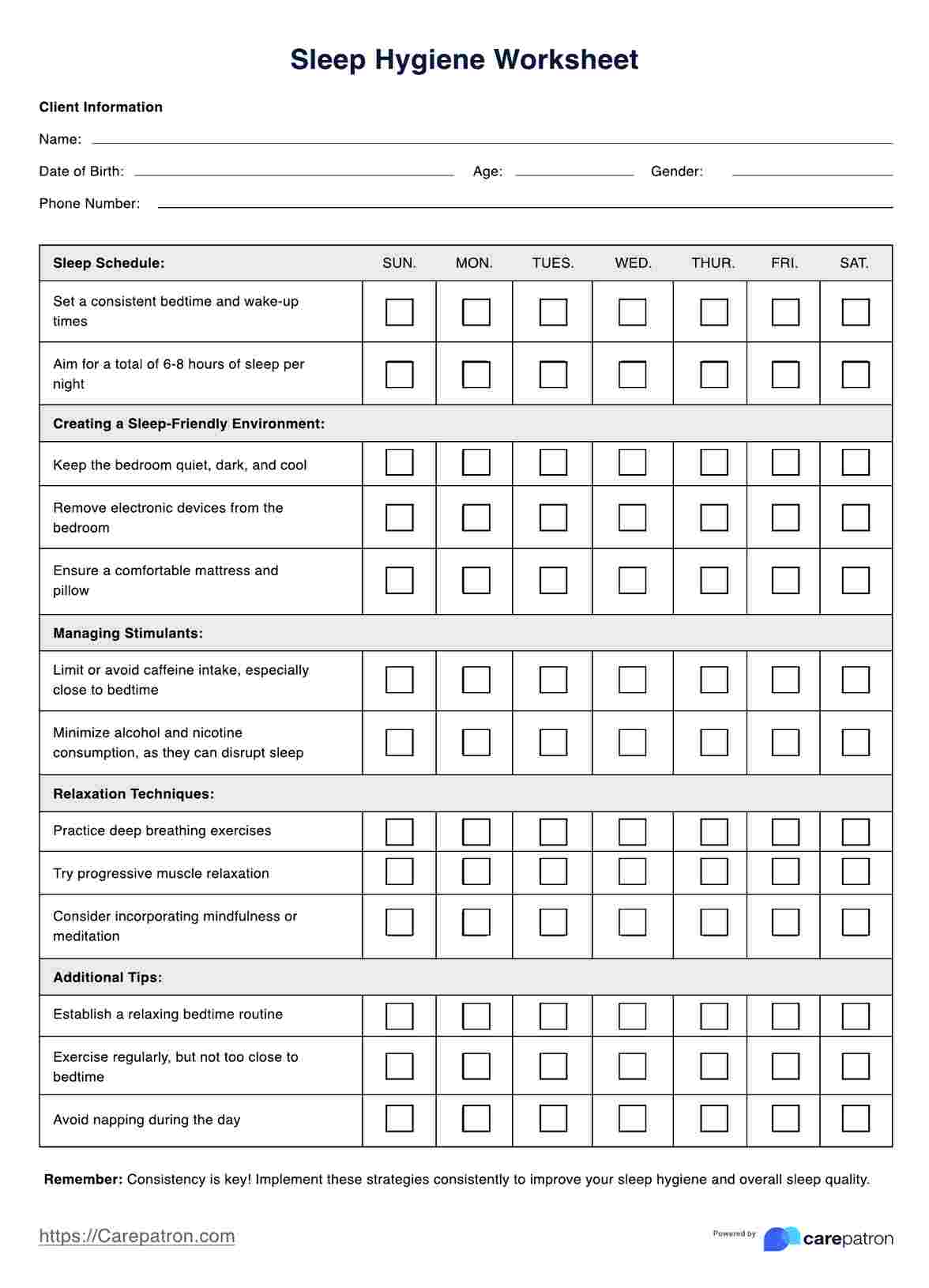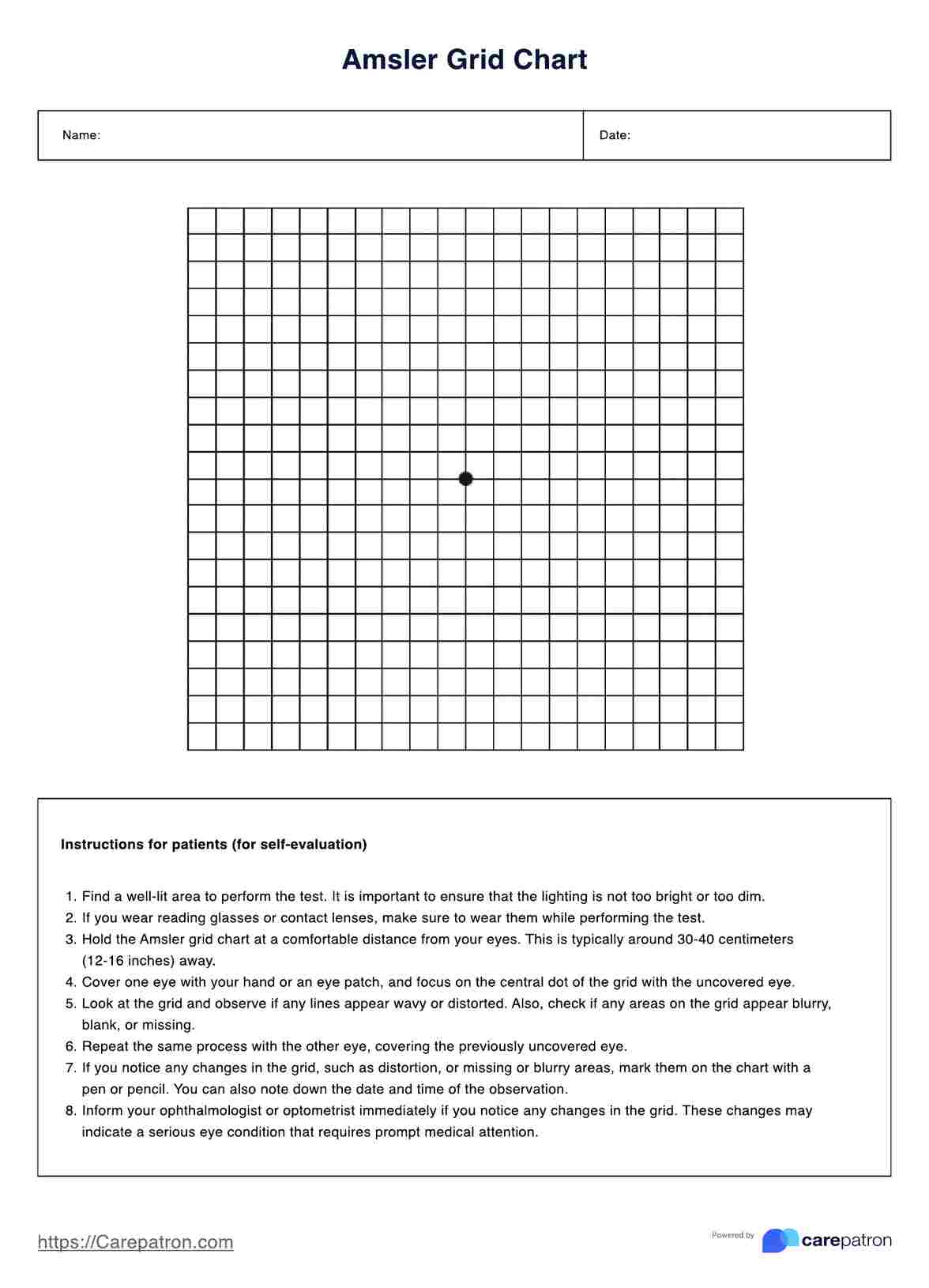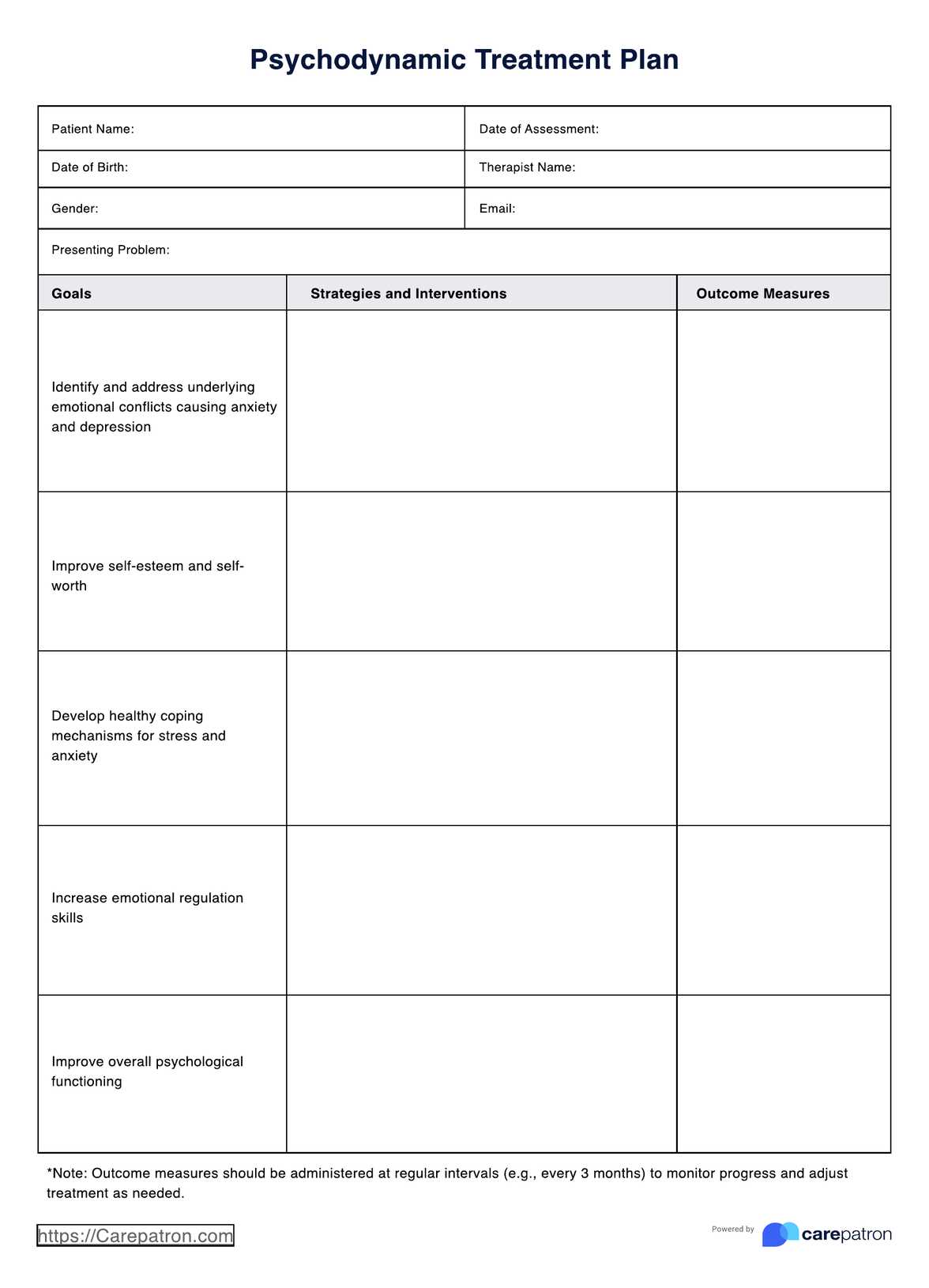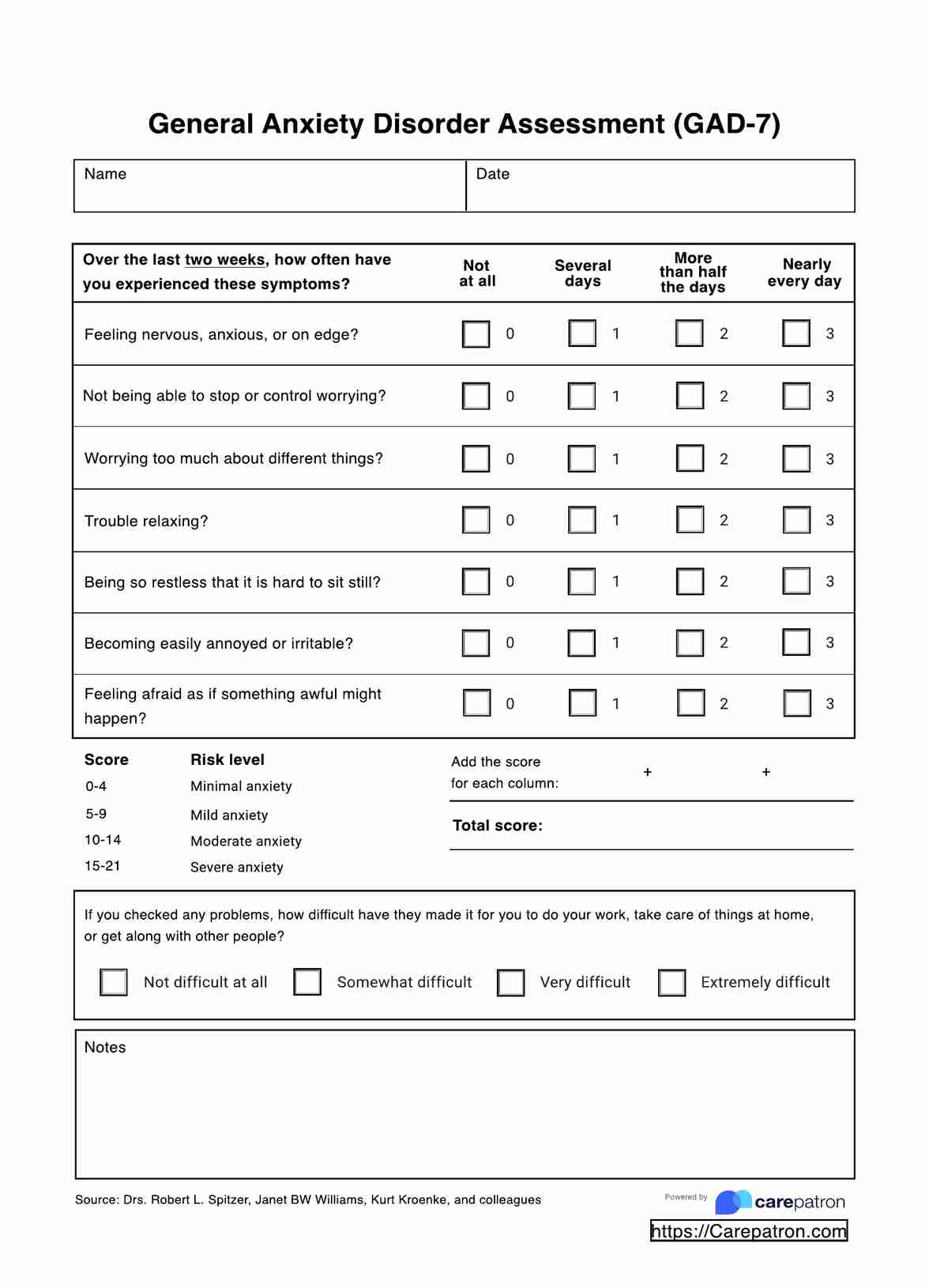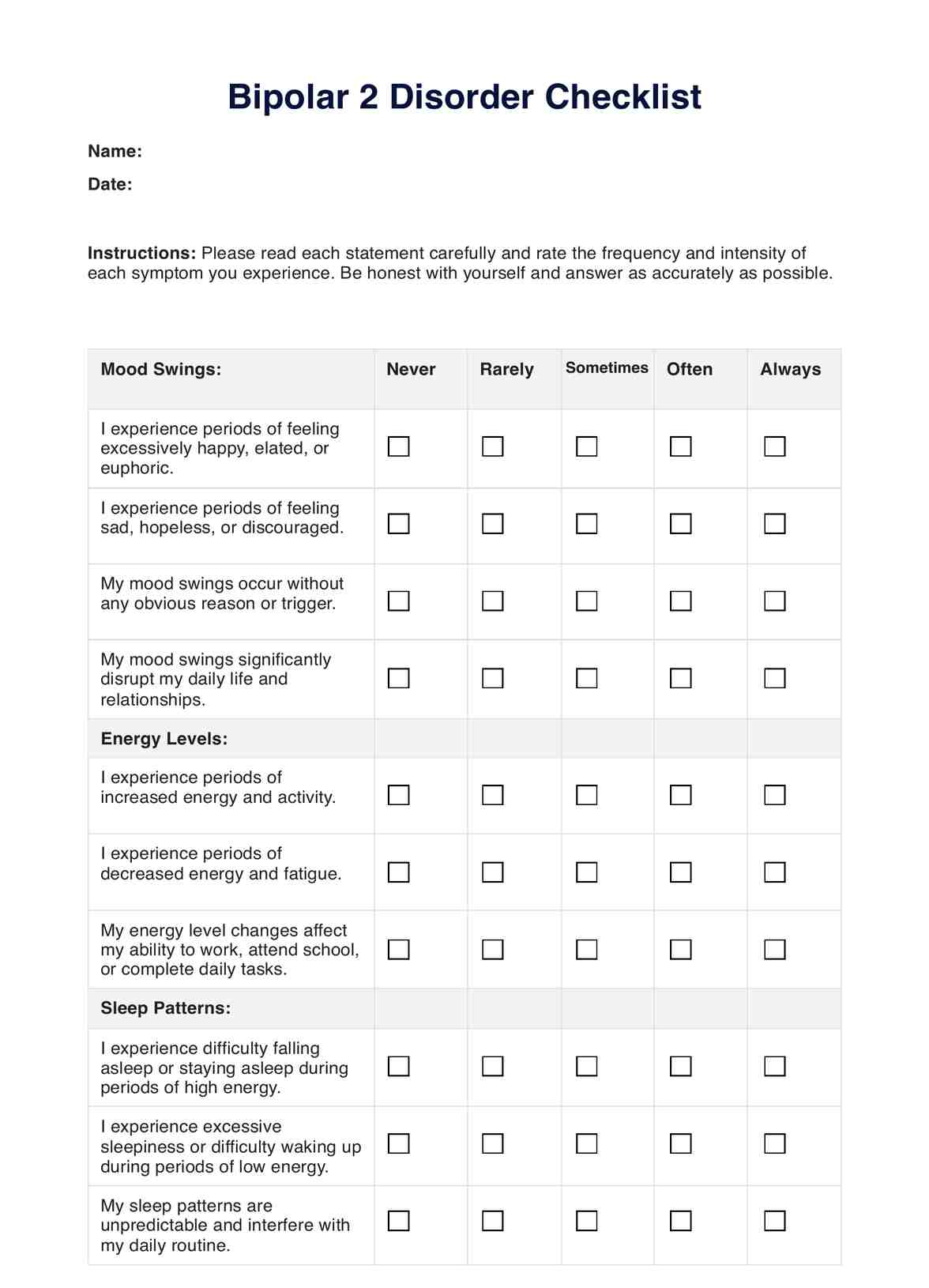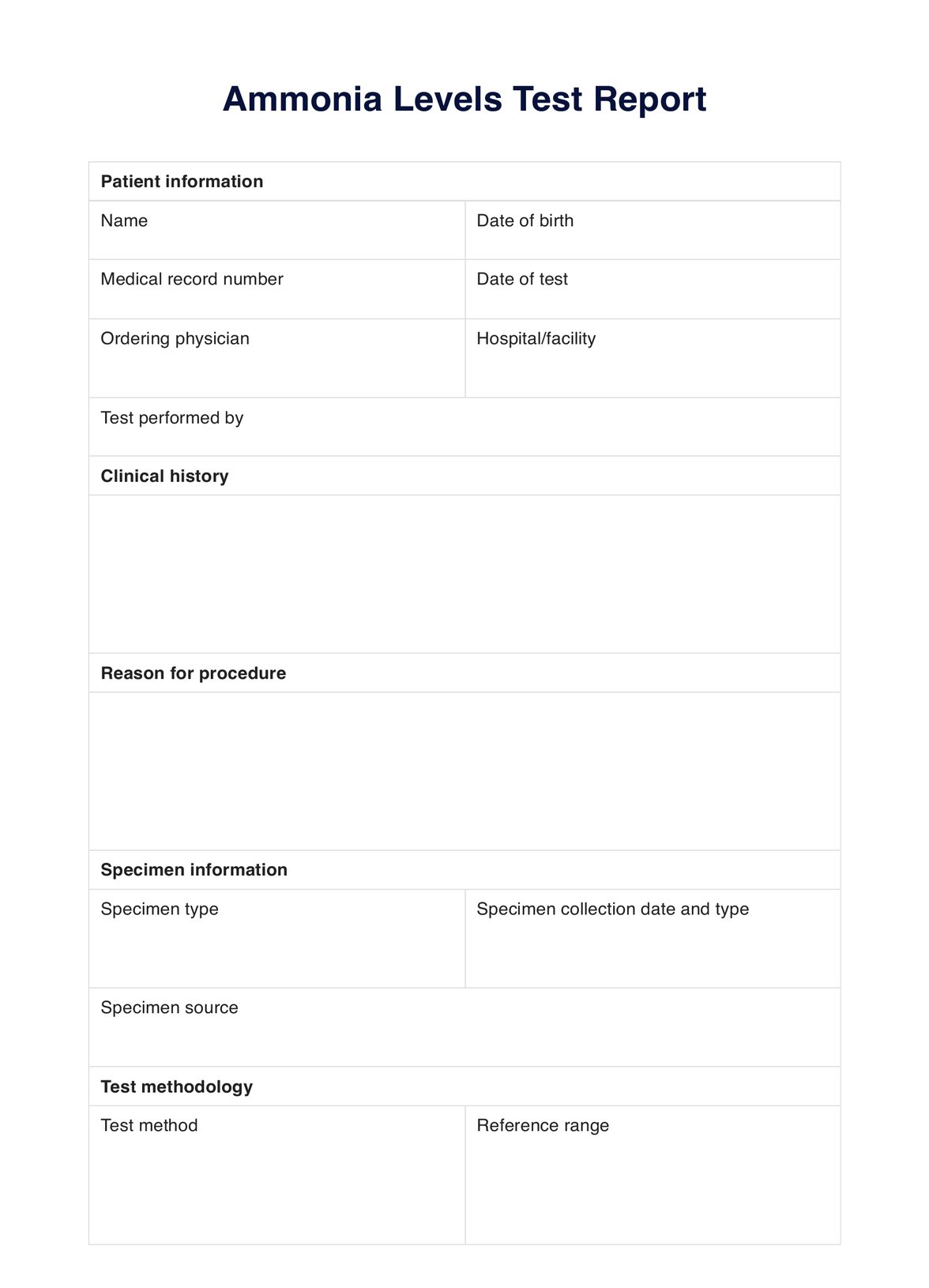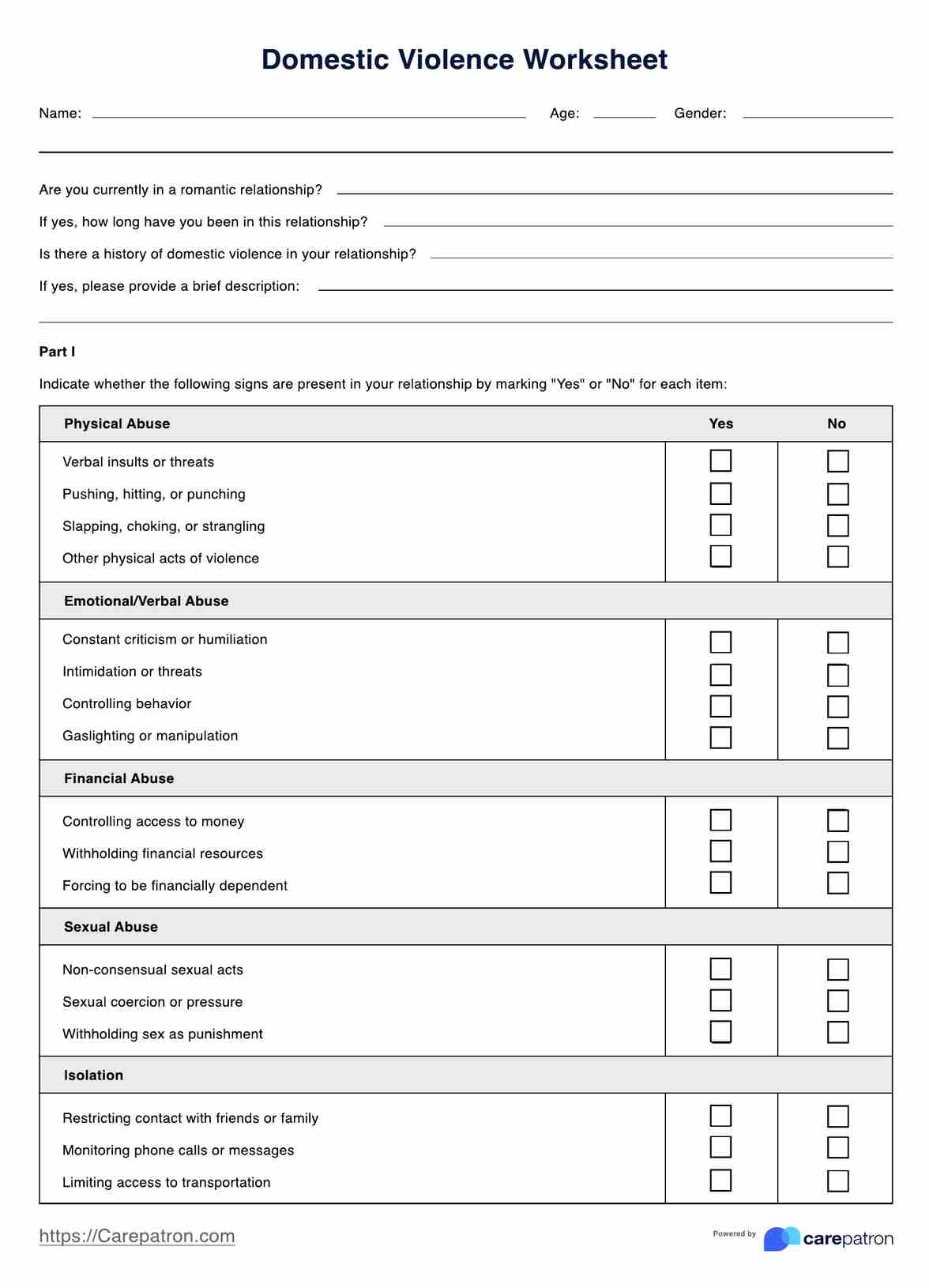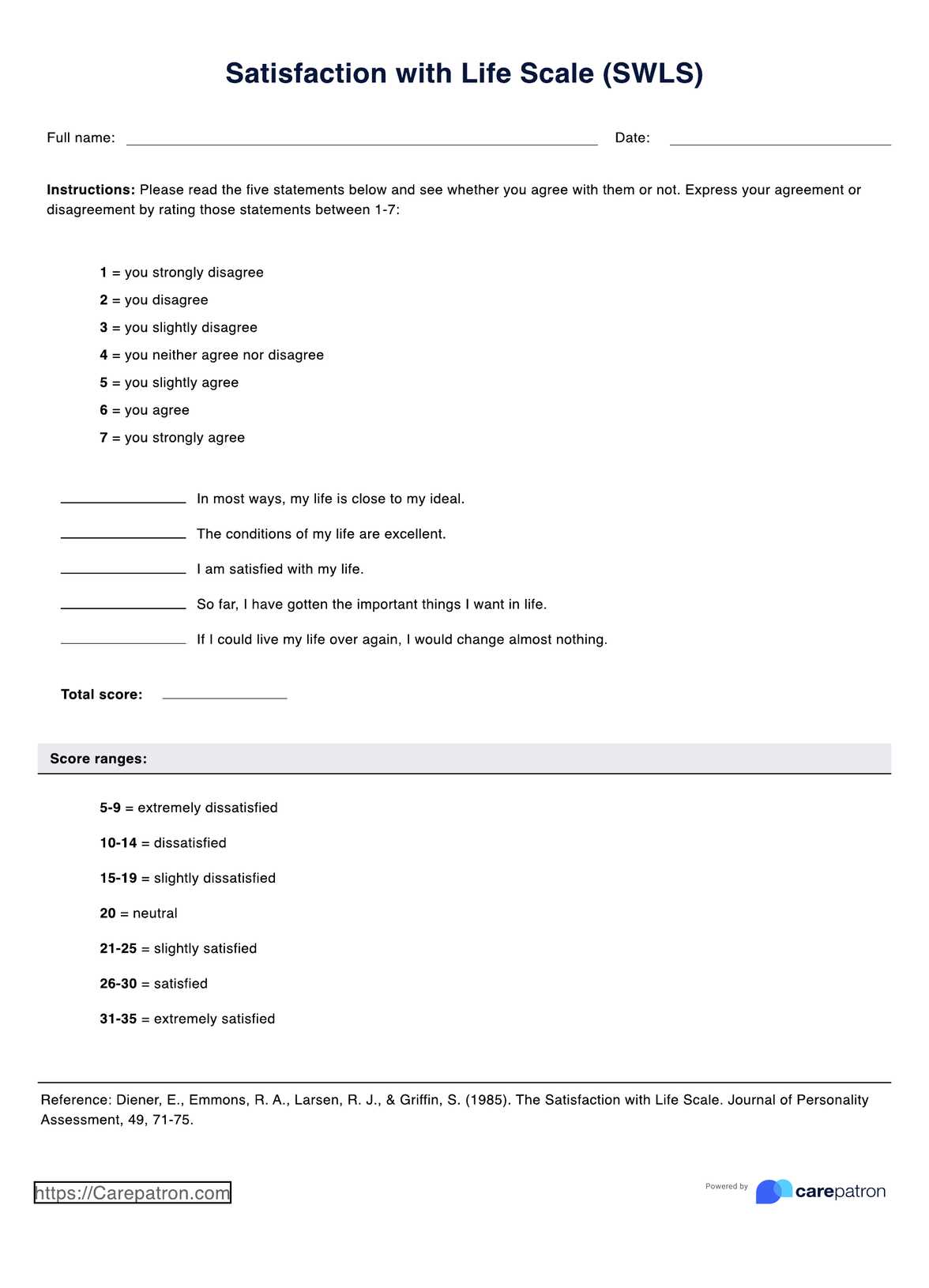DBT Please Skills Lists
Enhance emotional well-being with the DBT Please Skills List—practical, emotional regulation and resilience strategies.


What is a DBT Please Skills List?
The DBT Please Skills List is valuable for anyone practicing Dialectical Behavior Therapy (DBT) or looking to enhance their emotional regulation and coping abilities. DBT is a form of cognitive-behavioral therapy that focuses on helping individuals develop skills to manage intense emotions, improve interpersonal relationships, and increase their overall quality of life. This list is a comprehensive compilation of techniques and strategies individuals can use to regulate their emotions and build emotional resilience effectively.
The acronym "PLEASE" represents five critical components of self-care that contribute to emotional well-being: Physical illness, Eating balanced meals, Avoiding mood-altering substances, Sleeping well, and Exercising. Each aspect of the acronym is equally significant in contributing to emotional resilience, and by internalizing and applying these practices, individuals can cultivate a stronger foundation for emotional regulation.
The list empowers individuals to navigate challenging situations more effectively, make informed decisions, and respond to emotions in healthier and more constructive ways. By incorporating these skills into daily life, individuals can build emotional resilience that will support them in managing difficult times and achieving a higher quality of life.
This resource is essential for individuals undergoing Dialectical Behavior Therapy, providing practical guidance on enhancing emotional well-being through self-care practices. It offers a comprehensive understanding of the PLEASE acronym and its components, facilitating the development of valuable life skills for dynamic management. Whether practicing DBT or striving to enhance your emotional regulation, incorporating the into your daily routine can help you build emotional resilience and achieve a more fulfilling life.
DBT Please Skills Lists Template
DBT Please Skills Lists Example
How does it work?
The DBT Please Skills List is a systematic and actionable tool within Dialectical Behavior Therapy (DBT) to foster emotional regulation and resilience. Here's a brief breakdown of its operational process:
Acquaintance
Familiarize yourself with the DBT Please Skills List document, recognizing its significance in enhancing emotional well-being.
Access
Obtain the printable DBT Please Skills List, whether through physical or digital means.
Comprehension
Read through the resource to understand the concept of "PLEASE" - Physical illness, Eating balanced meals, Avoiding mood-altering substances, Sleeping well, and Exercise.
Self-Assessment
Reflect on your current adherence to each component of the PLEASE acronym, gauging how well you incorporate these practices into your daily life.
Setting Goals
Identify areas where you can improve your self-care practices. Pinpoint specific goals related to physical health, nutrition, substance use, sleep patterns, and exercise routines.
Implementation
Actively integrate the identified self-care practices into your routine. Strive to maintain a balanced lifestyle by focusing on each component of the PLEASE acronym.
Regular Review
Continuously review your progress. Assess whether you are striving to achieve your goals and optimize emotional well-being.
Adjustment
Modify your approach as needed. Adapt your strategies based on real-time experiences and results.
Feedback Loop
Engage in a feedback loop with yourself. Acknowledge achievements and reflect on challenges to refine your emotional regulation techniques further.
Holistic Growth
Embrace the holistic growth facilitated by the DBT Please Skills List. Witness the evolution of your emotional resilience and regulation prowess over time.
When would you use this Form?
The DBT Please Skills List proves invaluable in various scenarios, offering a structured approach to enhance emotional well-being and resilience. Here's when this resource becomes particularly effective:
- Dialectical Behavior Therapy (DBT) Sessions: Integrate the DBT Please Skills List into therapy sessions as therapists guide clients through developing practical strategies for emotional regulation. This resource aligns seamlessly with the core principles of DBT.
- Exploring Self-Care Strategies: Individuals looking to bolster their emotional management toolkit can use the DBT Please Skills List. It provides a systematic guide to fostering self-care habits that contribute to improved well-being.
- Stressful Life Transitions: During challenging life transitions, such as moving, changing jobs, or personal upheavals, the DBT Please Skills List offers concrete techniques to navigate emotions effectively, fostering stability in uncertain times.
- Group Discussion: Facilitators of support groups, workshops, or therapy sessions can utilize the DBT Please Skills List to structure discussions around emotional regulation. It serves as a springboard for sharing experiences and strategies.
- Mental Health Education: Educational institutions can incorporate the DBT Please Skills List to educate students about managing emotions and practicing self-care. It equips them with valuable life skills essential for overall well-being.
- Ongoing Personal Growth: Anyone on a personal development journey can use the DBT Please Skills List to fine-tune emotional regulation techniques. Regularly revisiting and implementing the list can lead to lasting positive change.
The DBT Please Skills List finds its application when seeking guidance on emotional regulation, whether in therapeutic settings, educational environments, personal growth endeavors, or times of upheaval. Its adaptable nature ensures relevance across diverse situations where bolstering emotional well-being is paramount.
Benefits
Harnessing the Free DBT Please Skills List brings forth a host of advantages, proving instrumental in cultivating emotional well-being and resilience:
1. Structured Self-Care
The resource provides a structured framework for individuals to engage in systematic self-care practices, fostering emotional balance and stability.
2. Enhanced Emotional Regulation
Users can refine their emotional regulation skills by adhering to the PLEASE acronym, effectively managing intense emotions and stressors.
3. Practical Guidance
The list offers actionable strategies and techniques that users can seamlessly incorporate into their daily lives, translating theory into practical habits.
4. Personalized Approach
Users can tailor their utilization of the DBT Please Skills List, focusing on areas that align with their specific emotional needs and challenges.
5. Improved Coping Mechanisms
Individuals can develop healthier coping mechanisms through the resource's guidance, reducing impulsive reactions and promoting thoughtful responses.
6. Long-Term Resilience
Consistent implementation of the skills outlined in the list cultivates enduring emotional resilience, fortifying individuals against future challenges.
Incorporating the Free DBT Please Skills List into one's routine reaps multifaceted rewards, nurturing emotional well-being and fostering a profound self-mastery.
Research & Evidence
The DBT Please Skills List has its roots in Dialectical Behavior Therapy (DBT), a widely recognized form of psychotherapy developed by Dr. Marsha M. Linehan in the late 1980s. Dr. Linehan created DBT to address the complex needs of individuals struggling with emotional dysregulation, self-destructive behaviors, and challenging interpersonal relationships. The PLEASE acronym within the DBT Please Skills List encapsulates critical components of emotional regulation, as refined through years of clinical experience and research.
Numerous studies and clinical trials have explored the efficacy of Dialectical Behavior Therapy, which encompasses the concepts reflected in the DBT Please Skills List. Research has consistently demonstrated that DBT effectively reduces self-harming behaviors, suicidal ideation, and symptoms of conditions like borderline personality disorder. As highlighted by the PLEASE skills, the focus on emotional regulation contributes to these positive outcomes.
Furthermore, research has shown that the skills outlined in the DBT Please Skills List align with principles from other evidence-based therapeutic modalities, such as cognitive-behavioral therapy and mindfulness-based interventions. The integration of these strategies supports emotional well-being, resilience, and the cultivation of healthier coping mechanisms.
Through the years, DBT has garnered empirical support and recognition within the mental health field. It has become a cornerstone in the treatment of various emotional challenges. The DBT Please Skills List, drawing from this extensive body of research and clinical expertise, emerges as a tangible and structured tool to aid individuals in practicing emotional regulation and improving their overall quality of life. Its foundation in established therapeutic principles and its alignment with evidence-based practices contribute to its credibility and effectiveness as a resource for enhancing emotional well-being.
References
Ackerman, C. E., MA. (2023). 20 DBT Worksheets and Dialectical Behavior Therapy Skills. PositivePsychology.com. https://positivepsychology.com/dbt-dialectical-behavior-therapy/
DBT Skills in 5 minutes or Less! (n.d.). YouTube. https://www.youtube.com/playlist?list=PLVlLbxLe1Eo6-YjpTfW0UbSOig_4FDac3
DBT Skills List - DBT Self Help. (2022, January 11). DBT Self Help. https://dbtselfhelp.com/dbt-skills-list/
DBT Skills List and Application | Free PDF Download. (n.d.). https://www.carepatron.com/templates/dbt-skills-lists
Greene, P. (2023, August 7). The ABC PLEASE Skills: How to Be Happy - Manhattan CBT. Manhattan Center for Cognitive Behavioral Therapy. https://www.manhattancbt.com/archives/1514/abc-please/
Sunrisertc. (2017, November 15). Using the DBT ABC PLEASE Skills to Regulate Emotions. Sunrise Residential Treatment Center. https://sunrisertc.com/abc-please-skills/
Commonly asked questions
DBT Please Skills Lists are commonly utilized by individuals undergoing Dialectical Behavior Therapy (DBT), therapists, mental health professionals, support groups, educational institutions, corporate wellness programs, and personal growth enthusiasts.
A DBT Please Skills List is used when individuals seek to enhance emotional regulation, manage intense emotions, navigate life transitions, foster resilience, or participate in therapeutic sessions. It's also employed in educational settings, support groups, and wellness programs.
A DBT Individuals utilize please Skills List to incorporate self-care practices into their daily routines. It offers practical strategies for physical health, balanced nutrition, substance avoidance, sleep improvement, and regular exercise. Users assess their adherence, set goals, and gradually implement these practices for improved emotional well-being.


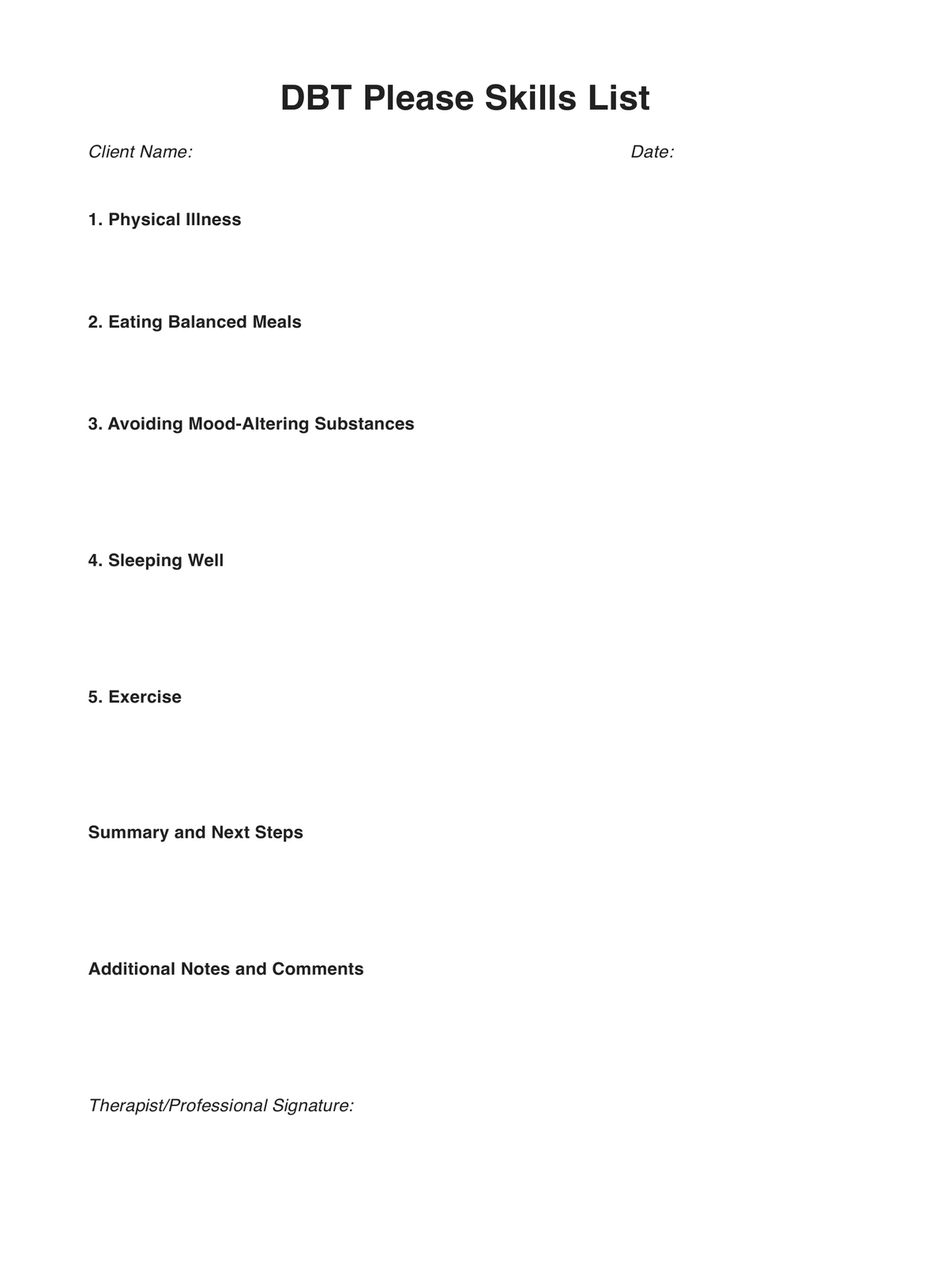
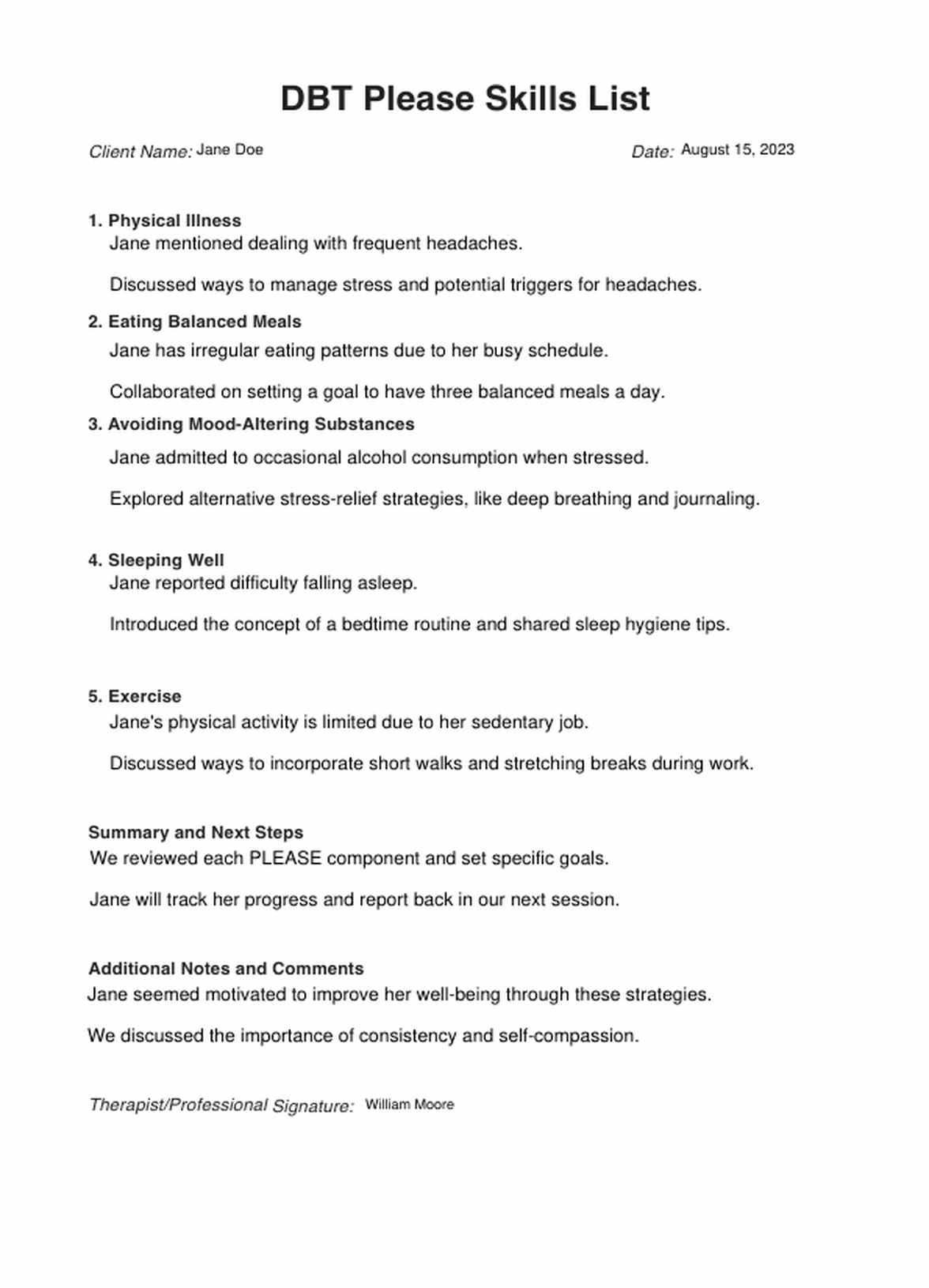

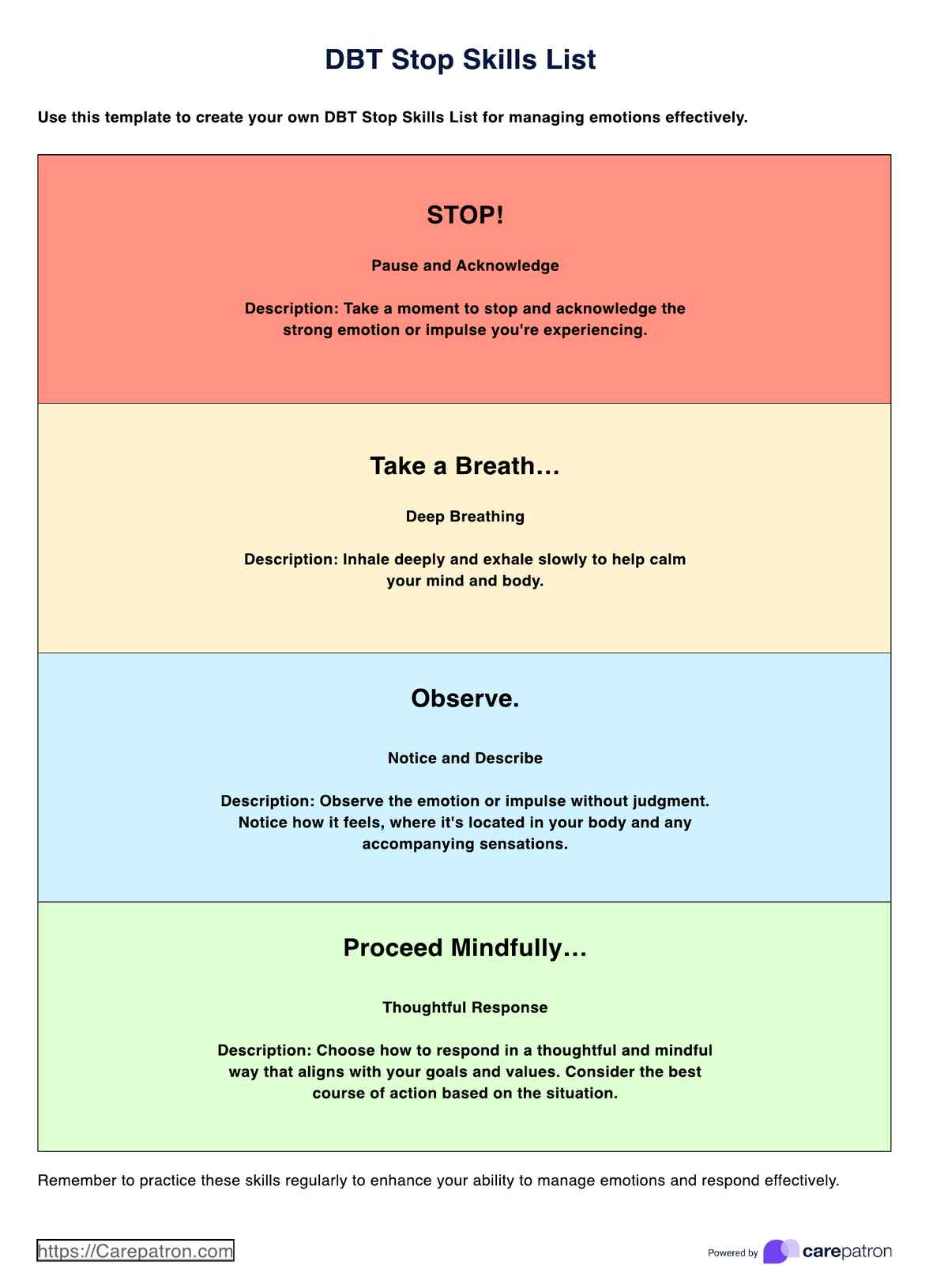
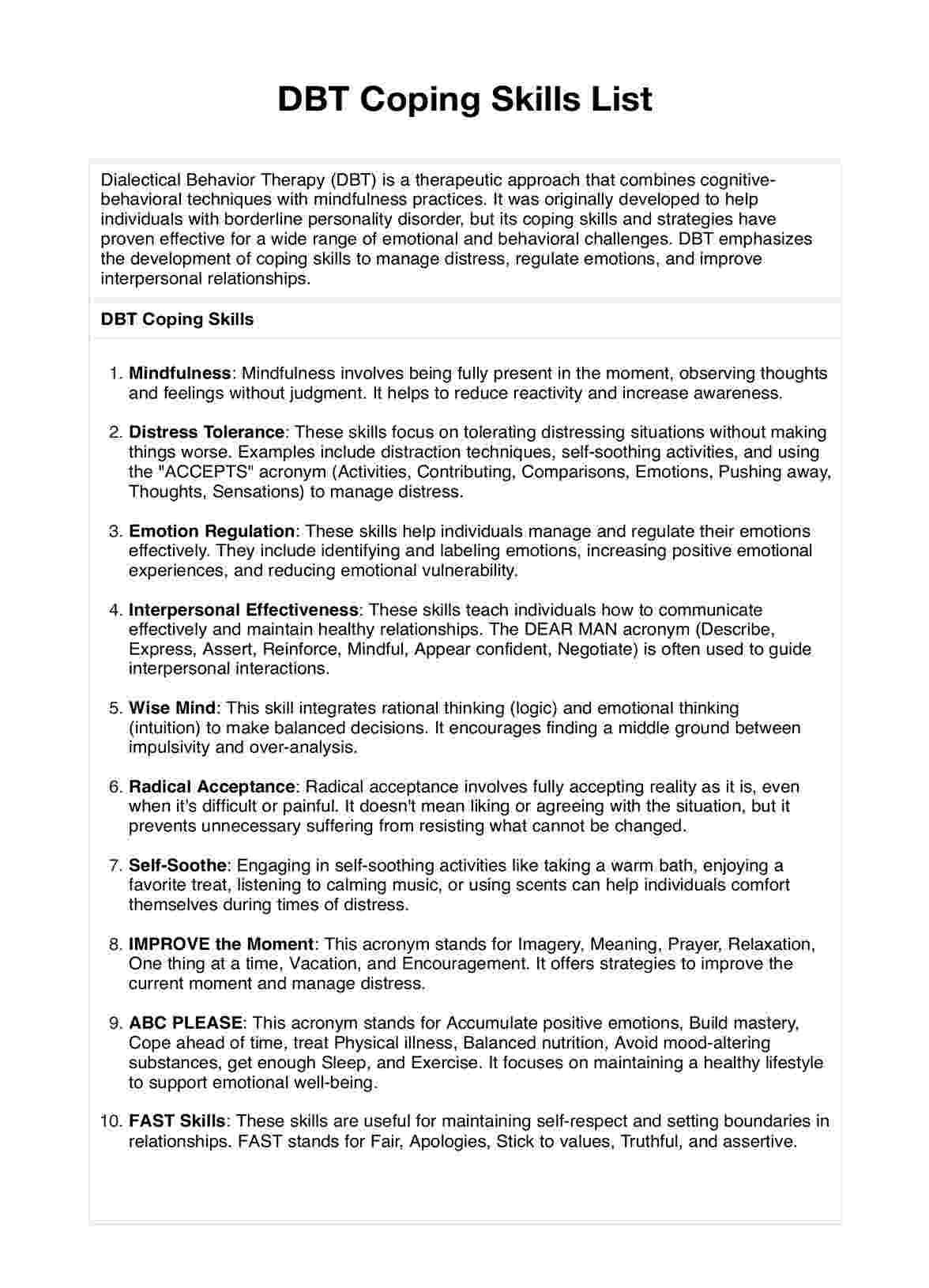
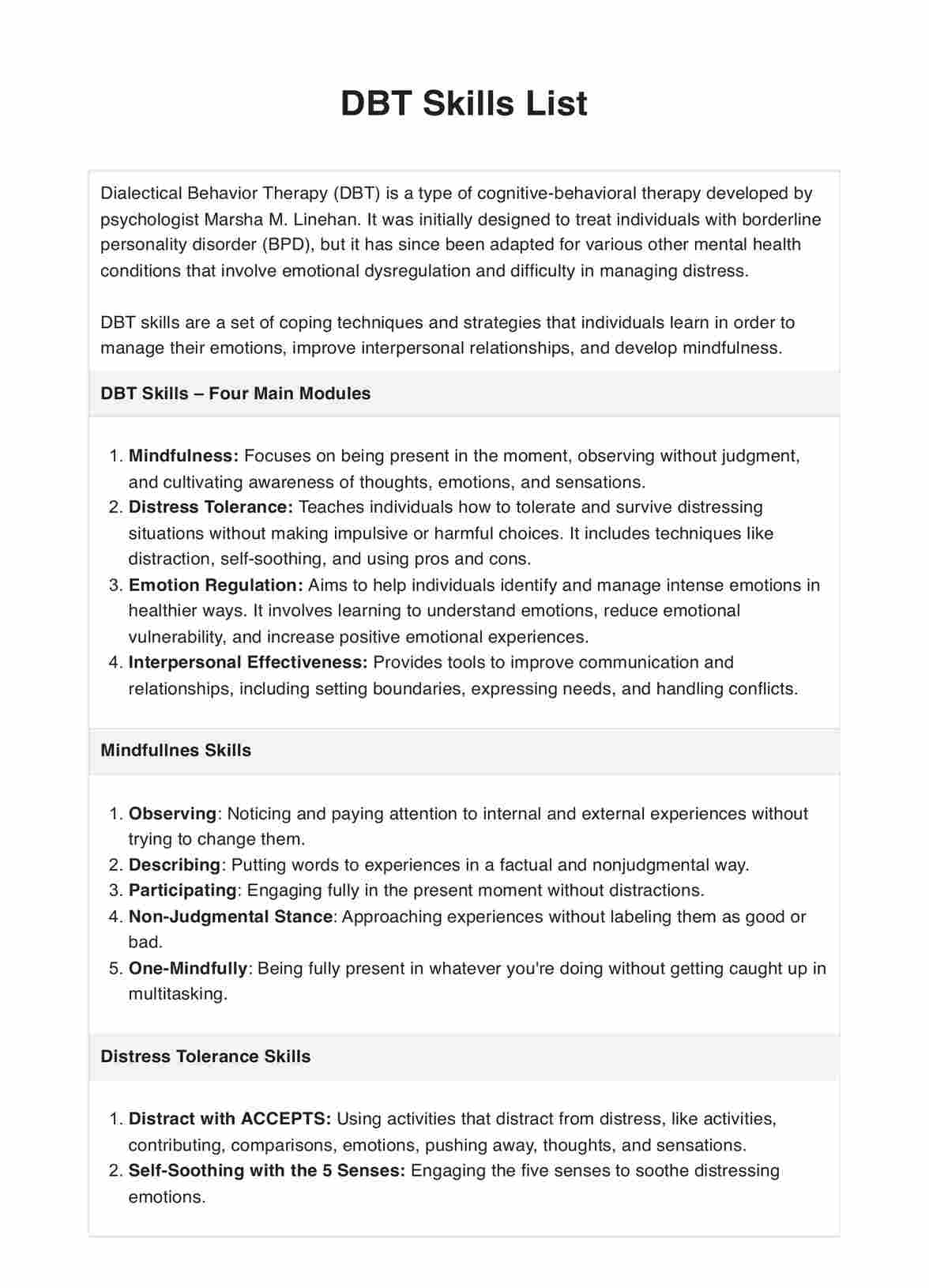














-template.jpg)






